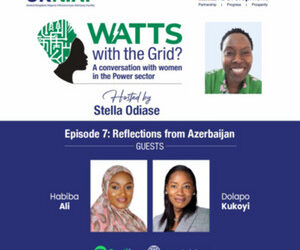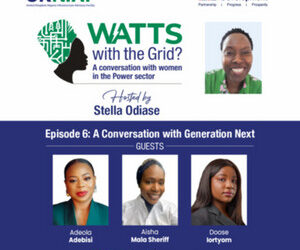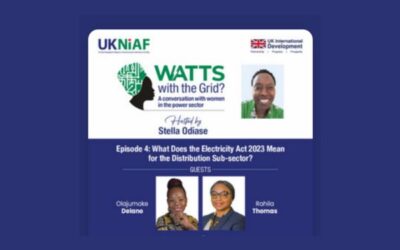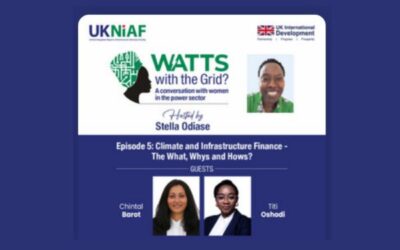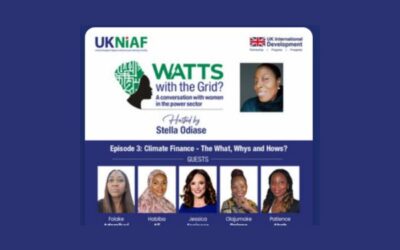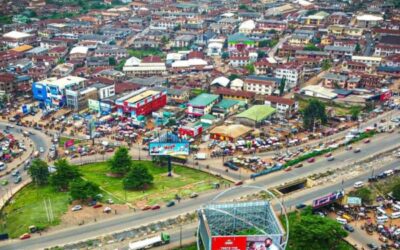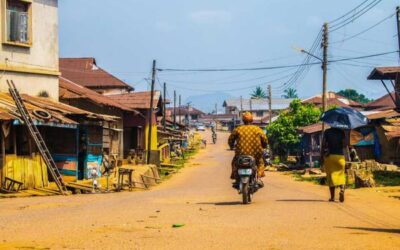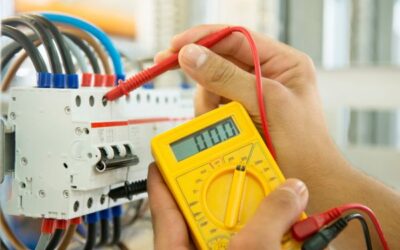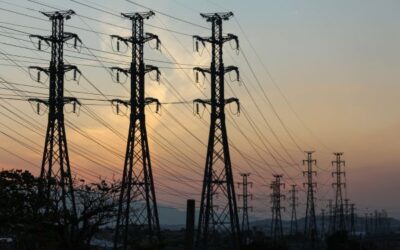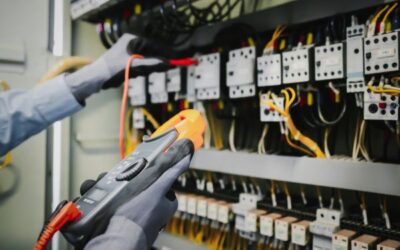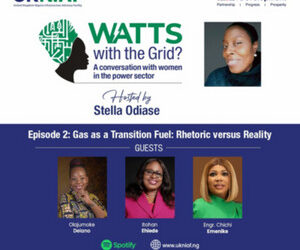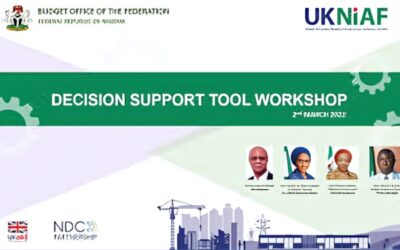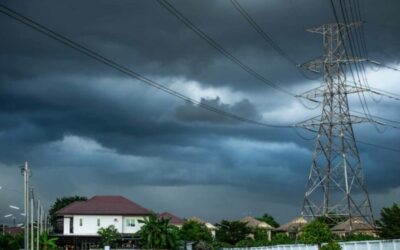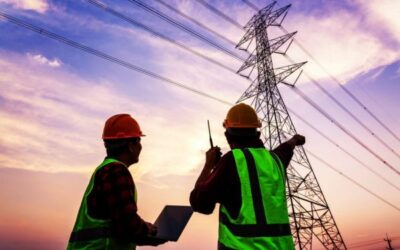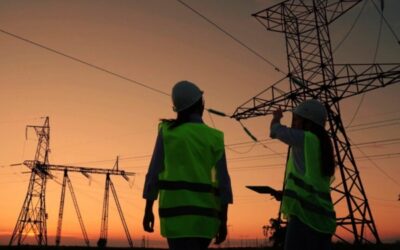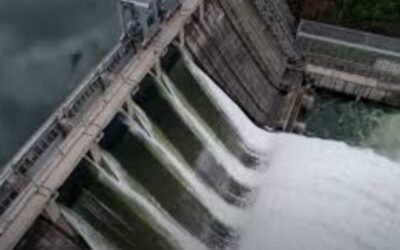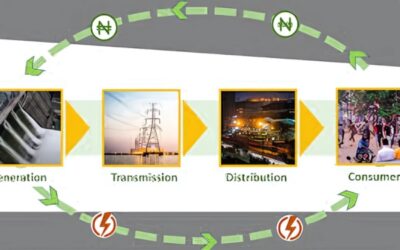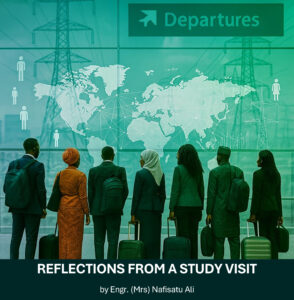On this episode of WATTS with the Grid, we are joined by Dolapo Kukoyi (Managing Partner, Detail Solicitors) and Habiba Ali (Managing Director/CEO, Sosai Renewable Energies Company). Fresh from COP 29 in Azerbaijan, they share their perspectives on key discussions that featured at the event, such as climate finance, energy access, and the importance of positioning Nigeria to leverage global opportunities.
ukniafstoriesofchange
“WATTS with the Grid?” Episode 6: Conversation with Generation Next
In this special episode, we feature a group of young women in the Power sector. Chartered Accountant and Portfolio Manager at UKNIAF, Adeola Adebisi; Electrical Engineer and Project Manager at UKNIAF, Aisha Mala Sheriff; Energy Policy Research Analyst at Nextier, Doose Iortyom reflect on their experiences and share insights on critical issues shaping the sector, including valuable advice they would offer to their younger selves.
“WATTS with the Grid?” Episode 4: What does the Electricity Act 2023 mean for the distribution sub-sector?
In this episode female executives in Nigeria’s Power sector examine Nigeria’s Electricity Act 2023 and its implications for the distribution sub-sector. With the repeal of the 2005 reform act, the new legislation grants states, private investors, and individuals the power to generate, transmit, and distribute electricity. This conversation explores what this means for the 11 distribution companies (DisCos) currently serving Nigeria’s 36 states and the Federal Capital Territory.
“WATTS with the Grid?” Episode 5: Climate and Infrastructure Finance: The What, Whys and Hows – Part II
How can Nigeria bridge the climate finance gap to meet its ambitious targets? Our guests, Chintal Barot (Founder, Co-Sustain Consulting) and Titilayo Oshodi (Special Adviser on Climate Change and Circular Economy to the Governor of Lagos State), share insights on accessing funding, the role of gender in climate finance and why the economic argument is crucial for driving climate action.
“WATTS with the Grid?” Episode 3: Climate Finance: The What, Whys and Hows.
Despite Nigeria investing an estimated USD 1.9 billion annually in climate-related activities, this is just 11% of the USD 17.7 billion needed to meet its emissions reduction goals by 2030. In this episode, we ask the critical questions: What’s driving these disparities? How can they be addressed? And what are the emerging opportunities, especially in light of the new Electricity Act 2023, which opens doors for renewable energy development across all 36 states?
Charting a sustainable future through the national electricity policy dialogue
As Nigeria stands at a pivotal juncture in its energy sector reform, the National Policy Dialogue on Electricity is more than just a series of meetings; it represents a forward-thinking approach to resolving longstanding challenges.
From Policy Dialogues to Policymaker Coalitions
By Stella Odiase and Khadijat Baba-Muhammad
From Policy to Practice: Building the Future of Nigeria’s Energy Sector
The journey towards a decentralised electricity market in Nigeria is a vivid example of how legal frameworks can lead to substantial institutional and societal changes when coupled with effective policymaker coalitions.
Electricity tariffs: a 3-way conversation #3
In this third and final instalment of a three-part series Stella Odiase, UKNIAF’s Cross Cutting Adviser and a Doctoral candidate at the Institute of Development Studies, Sussex University, reflects on a recent electricity customer interaction, where customer requests were quite straightforward.
Electricity tariffs: a 3-way conversation #2
In this second instalment of a three-part series Dr. Dalia Sakr, a UNFCCC accredited climate change expert, compares electricity and calorie consumption, pointing out that sometimes responsible behaviour takes discipline.
Electricity tariffs: a 3-way conversation #1
In this first of a three-part series Jumoke Delano, a multi-jurisdictional lawyer, and former Head of Regulatory Relations at the Abuja Electric Distribution Company, explores the interconnected roles of different players within the power value chain, and their need for cooperation and coordination.
Electricity tariffs: A three-way conversation
Three Perspectives on Nigeria’s Electricity Tariff Review:
the Utilities, the Climate Change Expert, and the Customer
Women on the Grid Hub
UKNIAF works to inspire women managers within the Nigerian power sector through the ‘Women on the Grid Hub. Eight trail-blazing women are helping us start this journey.
“WATTS with the Grid?” Episode 2: Gas as a transition fuel: rhetoric versus reality
While electricity in Nigeria is generated through thermal and hydropower, fossil fuels are the main source of electricity generation. Nigeria plans to increase international exports and domestic consumption and at the same time meet emissions and sustainable development goals. Can these two objectives be achieved at the same time? What could be the risks?
Olajumoke Delano, Chi Chi Emenike and Itohan Ehiede discuss these questions with Stella Odiase.
Challenges to the Nigerian power grid
What factors contribute to the myriad of challenges facing the Nigerian power grid?
UKNIAF’s Decision Support Tool (DST)
We developed a DST to assist the Federal Government of Nigeria efficiently identify and prioritise key infrastructure projects.
What you need to know about A Regional Electricity Market
Regional electricity markets promote inter-state electricity trade, encouraging power security and economic growth.
“WATTS with the Grid?” Episode 1: Electricity pricing, billing and everything in between
“WATTS with the Grid?” is a conversation with women who work in the power sector.
What do these women think about the current national conversation on tariff increases? How is the Service Based Tariff faring in terms of improvement in service and revenues? How does the price of electricity impact national commitments to a low-carbon transition?
Stella Odiase leads the conversation with Dalia Sakr, Wola Joseph-Condotti, Tosin Adefeko and Olajumoke Delano.
What you need to know about Nigeria’s Energy Transition Plan
In 2021, Nigeria’s Energy Transition Plan was created with COP26 support, prompting Nigeria’s net-zero commitment by 2060.
Climate change and power infrastructure
How does the changing climate affect electricity infrastructure?
The Outcomes of the Electricity Act Roundtable
The Electricity Roundtable gathered sector leaders to discuss the implications of the Nigeria Electricity Act 2023. We implemented this event in collaboration with the Nigeria Governors’ Forum and UKAID. What makes this Roundtable a landmark event in Nigeria’s energy transition journey?
What you need to know about the Nigeria Governors’ Forum High-Level Roundtable
The high-level gathering, is an opportunity for states to discuss ways to improve energy access for their citizens.
UKNIAF supports electricity sector contract enforcement
Stories of Change: UKNIAF’s support to enhance electricity agreements in the power sector.
Integrating weather forecasts into electricity generation and dispatch
Stories of Change: UKNIAF’s work on weather forecasts with NiMet to TCN
Influencing infrastructure decision making
Stories of Change: UKNIAF’s work on the Decision Support Tool (DST)
Developing an Integrated Resource Plan for Nigeria
Stories of Change: UKNIAF’s work on the Integrated Resource Plan (IRP)
Mobilizing private sector finance for climate smart infrastructure projects
Stories of Change: UKNIAF’s work on Special Agro Processing Zones (SAPZ)
Partial activation of contracts
Stories of Change: UKNIAF’s support to enhance electricity agreements in the power sector.

